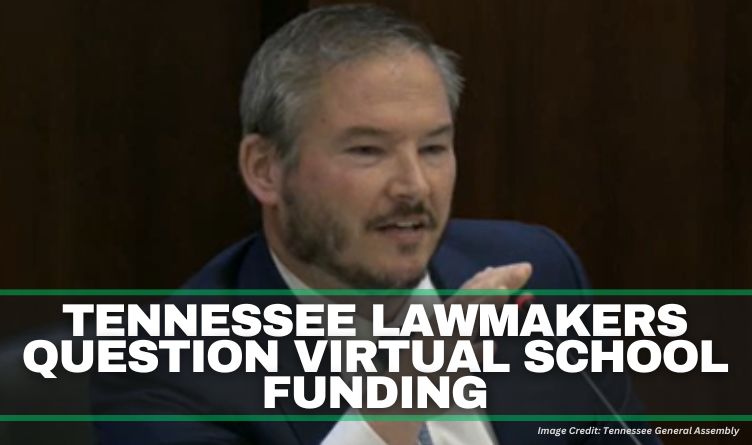Image: Tennessee Sen. Jeff Yarbro, D-Nashville Image Credit: Tennessee General Assembly
The Center Square [By Kim Jarrett] –
Tennessee lawmakers are questioning why two counties with virtual schools are reaping thousands in state funding at the expense of the state’s other 93.
Union and Johnson counties have the most significant percentage of the state’s 59 virtual schools, according to information presented at Thursday’s meeting of the Tennessee Advisory Commission on Intergovernmental Relations.
The virtual students were counted as attending school in Union and Johnson counties, even though they could live elsewhere.

“The effect of including their virtual school students in the fiscal capacity calculations, keeping all else the same, was an increase in state funding for Union and Johnson counties and decrease in state funding for the other 93 counties,” research director Michael Mount said in his presentation.
Sen. Heidi Campbell, D-Nashville, said the state should have a way of knowing where the virtual students reside.
“It’s strange to me that we’re calculating it this way when every other student is calculated based on where they reside,” Campbell said.
The Tennessee Investment in Student Achievement that took effect in the 2023-24 school year is calculated using base funding, weighted funding, direct funding, and outcomes funding. The base funding is $7,205 per student for the 2025-26 school year.
Sen. Jeff Yarbro, D-Nashville, said he didn’t think virtual schools should be a “money maker.”
“I think we’re creating a dangerous incentive system on the virtual education side that we should be very careful about doing especially based on their current low performance in the state,” he said.
Two virtual schools in Johnson County received “D” grades according to 2024 performance metrics published on the Tennessee Department of Education website. The county’s population is 17,982, according to the 2024 County Data Package from the Department of Health.

The virtual Tennessee Connections Academy for grades 9-12 has 1,496 students and received one of the “D” grades. Johnson County High School has 599 students, according to the Education Department.
The Tennessee Connections Academy for grades 4-8 also received a “D” and has 1,315 students. The county’s four elementary schools and its middle school have a combined enrollment of 1,238 students, according to the education department.
Commission Chairman Ken Yager, R-Kingston, said the questions raised are important. He asked the executive director to prepare a separate report on the issue for the commission’s next meeting.




One Response
Loophole NEEDS closed.